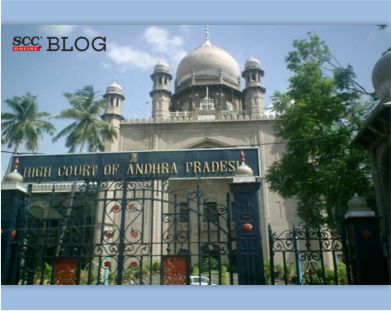Andhra Pradesh High Court: While dealing with the criminal appeal against the order of the Principal Sessions Judge, Kurnool, under section 302 of the Penal Code, 1860 (‘IPC’) which convicted the accused under section 304, Part I of the IPC, sentencing him to 3 years of imprisonment, the bench of A.V. Ravindra Babu, J., set aside the order stating that the prosecution had miserably failed to prove the accused had committed culpable homicide not amounting to murder.
Factual Matrix of the case
The accused married the deceased 06 years ago, and subsequently, suspected the deceased of infidelity in consequence to which used to beat her indiscriminately. In 2008, it was alleged that the accused beat the deceased to death using a jeep mudguard.
Legal Trajectory
The Judicial Magistrate of First Class took cognizance under section 498-A and 302 IPC and committed the case under section 209 of Code of Criminal Procedure, 1973 (‘CrPC’) to the Sessions Court. The Principal Sessions Judge found the accused guilty of offence under section 304 IPC instead of section 302 IPC.
Issue
-
Whether the prosecution had proved before the Court below that the accused committed the offence of culpable homicide not amounting to murder, beyond reasonable doubt?
-
Whether there is any other legally admissible evidence to connect the death of the deceased with that of alleged act of the accused?
Submission of the Accused
Most of the direct witnesses turned hostile during cross-examination, thus, the conviction of the accused based on presumption and assumptions does not sustain. The conviction cannot be solely based on the recovery of the weapon. The prosecution neither proved the presence of the accused at the time of death nor the witnesses knew how the deceased died.
Submission of the Public Prosecutor/Respondent
On account of the pressure exerted by the accused, kith and kin of the relatives did not support the case of the prosecution.
Court Observation
“Basing on the suspicion, however, grave it may be conviction of the accused is totally unsustainable under law and facts and nothing is there to record an order of conviction against the accused, as such, the appeal is liable to allowed.”
The Court opined that the inquest panchayatdars stating that the accused committed murder of the deceased cannot be read as substantive evidence since the witnesses did not support the case of the prosecution.
The weapon used to cause the injury could not be disclosed and there was no opinion at all how the injuries could be caused to the deceased as even the postmortem report could not disclose the same.
The Court further stated that the prosecution did not plead any circumstance to prove the guilt against the accused. Without there being any evidence as to the presence of the accused in the house at the time of the death of the deceased, especially when the material witnesses turned hostile, convicting the accused basing on the assumptions and presumptions by the Sessions Court was erroneous.
The Court went on to state that there was no evidence at all to prove that the accused in a heat of passion or due to sudden and grave provocation attacked the deceased.
The Court viewed that without there being any legally admissible evidence, the Sessions Court based its decisions on assumptions, presumptions and imaginations and convicted the accused.
“It is well settled that the suspicion, however grave it be, cannot be taken as a substitute for proof. There is no evidence at all to show that the accused did not participate in the funerals and later was found absconding.”
The Court concluded by setting aside the order of the Sessions Court stating that it erroneously convicted the accused without there being legally admissible and convincing evidence, instead of acquitting the accused. The prosecution miserably failed to prove that the accused committed culpable homicide not amounting to murder of the deceased in the manner as alleged.
[Boya Badannagari Laxmanna, Siddanagattu (V) Kurnool v. State, 2022 SCC OnLine AP 2885, decided on 14-12-2022]
Advocates who appeared in this case :
For the Petitioner- Advocate Karri Murali Krishna;
For the Respondent- Public Prosecutor (AP).






